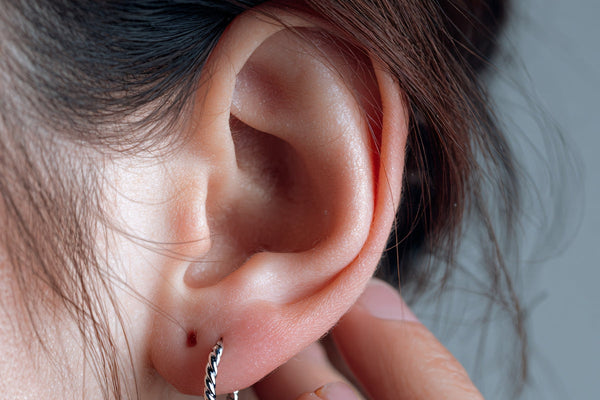
Misophonia is a condition where certain everyday sounds trigger strong emotional or physical reactions, such as irritation, anxiety, or discomfort. For people living with misophonia, noises like chewing, pen clicking, or breathing can feel overwhelming or even distressing. It’s not just about disliking sounds - it’s a genuine and recognised sound sensitivity that affects how the brain processes specific noises.
At Leightons, we understand that living with misophonia can be challenging. Our audiologists are here to listen, support, and help you explore ways to make everyday listening more comfortable.
What is misophonia?
Misophonia literally means “hatred of sound,” but that definition doesn’t fully capture what it feels like. It’s a condition where certain sounds - often soft, repetitive, or human-made noises - cause an intense emotional reaction. People with misophonia may feel anger, anxiety, or panic when they hear particular trigger sounds.
This condition isn’t caused by hearing loss or ear damage. Instead, it’s linked to how the brain’s emotional and auditory systems interact. Essentially, the brain misinterprets certain noises as threats, which triggers a strong emotional response.
Misophonia can vary from person to person. For some, it causes mild irritation, while for others, it can significantly impact daily life and relationships.
What causes misophonia?
The exact cause of misophonia isn’t fully understood, but research suggests it may be related to how sound is processed in the brain’s limbic system (which handles emotion) and auditory cortex (which processes sound). Possible contributing factors include:
- Changes in brain connections between sound and emotion
- Past experiences or associations with certain sounds
- Heightened stress or anxiety levels
- Other sound sensitivities, such as hyperacusis or tinnitus
- Links to autism spectrum conditions or sensory processing differences
While there’s no single known cause, understanding your personal triggers and responses is the first step towards managing them effectively.
Common symptoms and trigger sounds
People with misophonia experience a range of emotional and physical reactions to specific noises. Common symptoms include:
- Irritation, anger, or panic when hearing certain sounds
- Increased heart rate or tension
- Anxiety or stress in noisy environments
- Avoidance of situations where trigger sounds may occur
Common trigger sounds include:
- Chewing, slurping, or swallowing
- Breathing or sniffing
- Pen clicking or typing
- Foot tapping or repetitive background noises
These sounds can seem small to others but may cause a powerful, involuntary reaction in someone with misophonia.
How misophonia affects daily life
Misophonia can affect relationships, work, and social life. Many people find themselves avoiding situations where triggers are likely to occur - such as family meals or busy offices - which can lead to isolation or stress.
It’s important to remember that these reactions are not a choice. They’re part of how the brain and body respond to sound. With understanding and professional support, it’s possible to manage these reactions and regain a sense of calm and control.
How is misophonia treated or managed?
While there’s no cure for misophonia, several treatments and coping strategies can help reduce symptoms and improve quality of life:
- Sound therapy - introducing gentle background sounds to make triggers less noticeable
- Cognitive behavioural therapy (CBT) - helps retrain the brain’s emotional response to triggers
- Relaxation and mindfulness techniques - reduce anxiety and stress levels
- Professional hearing assessments - to check for related sensitivities such as tinnitus or hyperacusis
- Counselling or support groups - sharing experiences with others can be reassuring and helpful
Many people find that a combination of sound therapy and emotional support brings long-term improvement.
How Leightons can help
At Leightons, we take a supportive, understanding approach to sound sensitivity. Our audiologists can:
- Carry out hearing and sound sensitivity assessments to rule out related ear conditions.
- Offer advice on managing triggers and using background sound to make daily life easier.
- Refer you to specialist clinics for further treatment or therapy, if needed.
We’re here to help you understand your sensitivity, find practical solutions, and feel more comfortable in your everyday environments.
Book your free hearing assessment today and take the first step towards calmer, more confident hearing.








